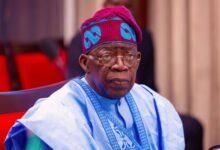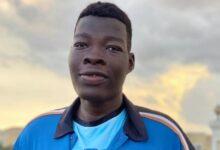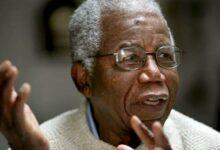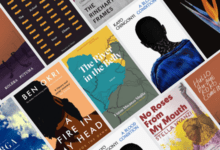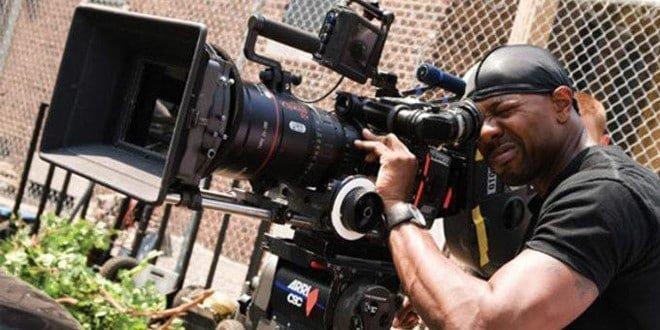
Top 15 Most Prominent Cinematographers in Africa
Top 15 Most Prominent Cinematographers in Africa – Africa has a rich tradition of visual storytelling through film. While the continent’s cinematic output has often been overlooked by the wider world, there are many talented cinematographers from across Africa who have made invaluable contributions to the art of filmmaking. This article will highlight 15 of the most prominent cinematographers working in Africa today. From veterans who have been filming for decades to up-and-coming cinematographers bringing fresh perspectives, these talented individuals capture the diverse beauty and narratives of the continent. Their stunning camerawork, from sweeping landscape vistas to intimate character studies, transports viewers and brings African stories to life on screen.Top 15 Most Prominent Cinematographers in Africa
The top 15 most Prominent Cinematographers in Africa Are:
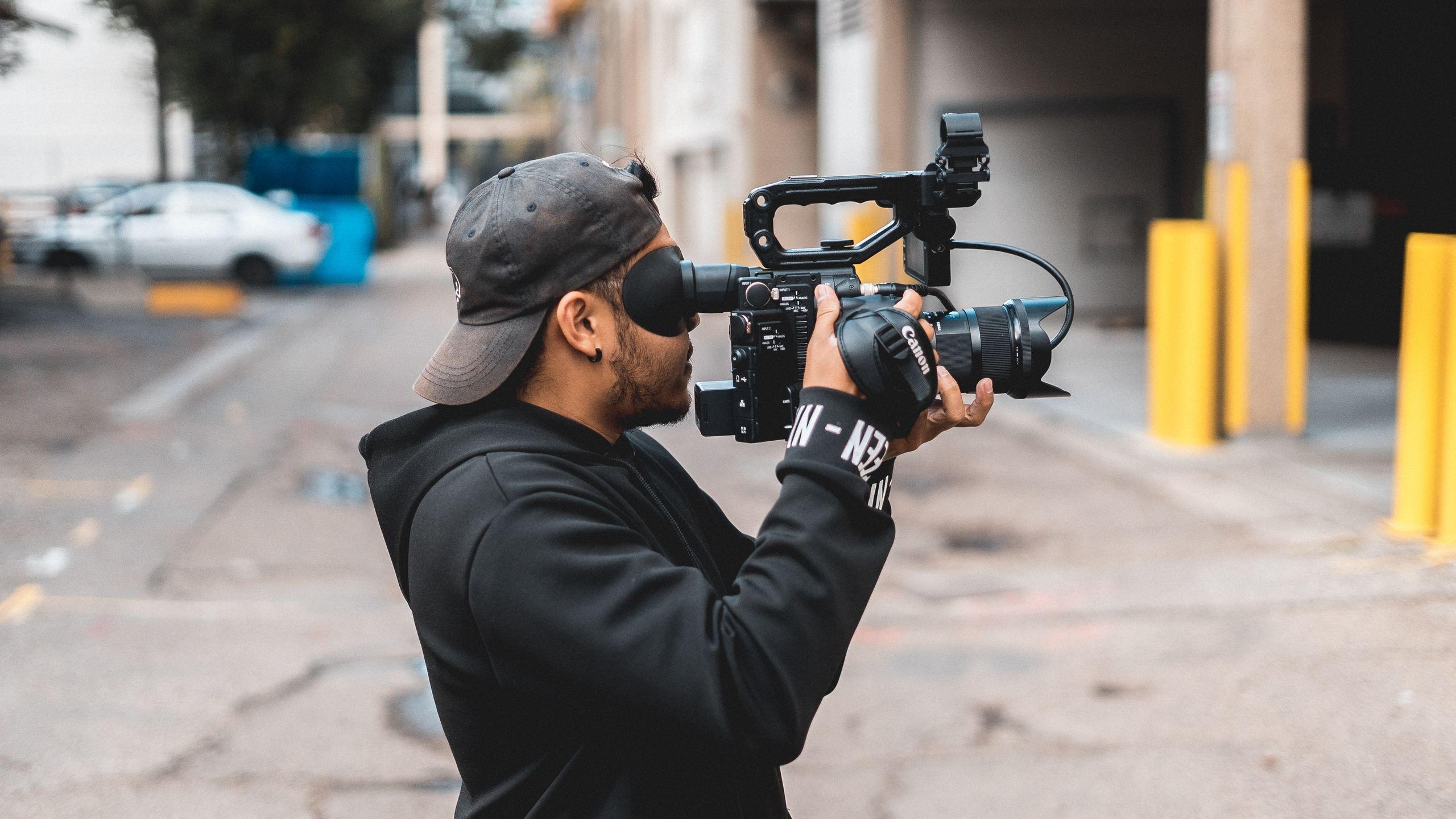
1. Abderrahmane Sissako (Mauritania)
One of Africa’s most acclaimed contemporary filmmakers, Abderrahmane Sissako has directed poignant dramas exploring colonialism and its legacy in West Africa. As the cinematographer on all his own films, Sissako has a brilliant eye for striking visual compositions. Scenes often linger on faces and landscapes, beautifully envisioning characters’ inner emotions. His landmark 2014 film Timbuktu, about jihadists taking over a Malian city, won numerous cinematography awards for its painterly frames. Sissako’s latest film At the End of the World was filmed across multiple African nations, with glorious desert vistas.
👉 Relocate to Canada Today!
Live, Study and Work in Canada. No Payment is Required! Hurry Now click here to Apply >> Immigrate to CanadaRead Also: 15 Best Open-Toe Heels 2023
2. Jihan El-Tahri (Egypt)
An acclaimed documentarian, Jihan El-Tahri has filmed extensively across Africa and the Middle East. Her documentary work is known for intimately observed cinematography that immerses viewers in her subjects’ worlds. Films like Behind the Rainbow on South African leader Nelson Mandela and Cuba: An African Odyssey on Cuban-African relations during the Cold War rely on El-Tahri’s eloquent camerawork to transport audiences through history. Her 2017 film Egypt’s Modern Pharaohs took viewers along turbulent events of the Egyptian Arab Spring with urgent, on-the-ground footage. El-Tahri’s cinematography insightfully illuminates key historical moments.
3. Wanjiru Kinyanjui (Kenya)
A trailblazer in Kenyan cinema, Wanjiru Kinyanjui has been filming since the 1980s. She was the first Kenyan woman cinematographer and directed landmark early films like Children of the Sun. Her work deftly explores pressing social issues like female genital mutilation through evocative camerawork. Kinyanjui’s recent documentaries have examined Kenya‘s history and the global AIDS epidemic. Currently she teaches cinematography at Kenyatta University, passing on her skills to new generations. Kinyanjui’s decades-spanning resume proves the visionary power of female cinematographers in African film.JAMB portal
4. Youssef Chahine (Egypt)
With a career spanning over 50 years up until his death in 2008, Youssef Chahine was one of Egypt’s most prolific filmmakers. He directed 47 films, exploring Egyptian identity and forging melodramas that drew comparisons to Bollywood. Chahine’s Expressionist cinematography utilized swirling long takes and dreamlike distortions. He influenced generations of Egyptian filmmakers with his ambitious historical epics and political commentary. His later films like Destiny defiantly criticized government censorship with surreal imagery. Even as he faced backlash, Chahine left an indelible mark on Arab cinema through his daring cinematography.
Read Also: Top 15 Foods for Cancer Prevention
5. Mohamed Hafiz (Morocco)
A leading director of photography in Moroccan cinema, Mohamed Hafiz brings compelling visual flair to films about ordinary working-class lives. His first feature as cinematographer, Ali Zaoua: Prince of the Streets (2000), sensitively captured street children in Casablanca through a vivid handheld style. He has since worked on acclaimed social realist dramas like Horses of God (2012) about a suicide bomber. Hafiz employs naturalistic light for an immersive cinematic effect. His latest film Sofia (2018) tackles taboos around premarital sex with gently moving camerawork, presenting intimate stories with empathy.
6. Sammy Muveli (DR Congo)
One of few well-known cinematographers from the Democratic Republic of Congo, Sammy Muveli creates striking imagery despite limited resources. His early work capturing the Congo River led to documentary cinematography like Congo: White King, Red Rubber, Black Death (2004), about colonial rubber industries. He has since shot both documentaries and fiction films, including Viva Riva! (2010), a tense neo-noir set in Kinshasa. Muveli improvises using available light sources like flashlights, crafting thrilling visual moods. His resourceful cinematography under challenging conditions shows the resilience of African filmmakers.NYSC Portal
7. Agnès Godard (France/Morocco)
Though French-born, Agnès Godard works extensively across Africa and with African directors. Fluent in English and Arabic, she captures multilingual settings from Morocco to Burkina Faso. Godard is known for versatile camerawork ranging from Immigrant tales to historical fiction. She filmed Biyi Bandele’s Half of a Yellow Sun (2013) based on the Nigerian Civil War novel, with scenes carrying emotional weight through meticulous framing. For Abderrahmane Sissako’s Timbuktu, she employed elegant tracking shots and striking compositions. Her attentive, roving cinematography intuits directors’ core themes, facilitating creative collaborations.
👉 Relocate to Canada Today!
Live, Study and Work in Canada. No Payment is Required! Hurry Now click here to Apply >> Immigrate to Canada8. Aziz Touil (Algeria)
In a career of over 40 years, Algerian cinematographer Aziz Touil has brought nuance and beauty to realistic portrayals of his country’s history. He was first trained at Algeria’s national film school in the 1960s and went on to shoot acclaimed films like Rachida (2002). His cinematography captures tumultuous post-colonial struggles through lingering close-ups and natural light. In recent years, Touil has filmed historic epics like the two-part Lumière! (2016) tracing the introduction of cinema to Algeria. Though now elderly, his dedication to developing Algeria’s film industry remains inspirational to younger generations.Good morning My Love Message
Read Also: Top 15 T-Shirt Apparel Brands in Nigeria
9. Matimba Kabalika (Zambia)
One of few well-known Zambian cinematographers, Matimba Kabalika has brought international attention to his country’s film community. He is the cinematographer behind Zambia’s first ever submission to the Academy Awards, the lighthearted fish-out-of-water story I Am Not a Witch. Kabalika’s sweeping drone shots of Zambia’s countryside and witch camps were praised, though he has criticized the Western gaze. He continues promoting Zambian stories as a cinematography mentor, having worked on both small documentaries and Hollywood co-productions. Kabalika’s stunning landscapes invite international viewers to better appreciate Zambian settings.
10. Saïd Khallaf (Tunisia)
Tunisian cinematographer Saïd Khallaf brings visual experimentation to Maghrebi cinema. He rose to fame for his camerawork on Abdellatif Kechiche’s Games of Love and Chance (2003), a romance among Tunisian teens. The handheld, free-floating cinematography expressed restlessness in French housing projects. He frequently collaborates with director Ala Eddine Slim, including experimental road films like Tlamess. Khallaf captures alienation andMagical realism through moody lighting and dreamlike imagery. Pushing cinematic boundaries, his impressionistic work expands the aesthetics of North African cinema.Romantic love message
11. Toumani Sangaré (Mali)
One of Mali’s leading cinematographers, Toumani Sangaré has lent his creative eye to acclaimed African directors like Abderrahmane Sissako. He was first trained at Moscow’s prestigious film school VGIK in the 1980s. Sangaré has since shot features across West Africa, including Sissako’s waiting-centric drama Heremakono (2002) in his native Mali. His documentaries also tackle colonialism and its memory. In Daouda, Prince of the Forgotten (2005), Sangaré returns with a Malian immigrant to France, contrasting grainy home movies with pristine HD. All his works are visually rich with the textures of memory and longing.Information guide Nigeria
12. Suzanne Gwarzo (Nigeria)
Nigerian cinematographer Suzanne Gwarzo is a rarity as a female cinematographer in West African cinema. She began as a photographer before studying cinematography in the 1990s in London. Gwarzo has since shot Nigerian films in a range of genres, bringing visual coherence through elegant shot composition. Her titles include romantic comedies like Picture Perfect (2009) to acclaimed dramas like Dry (2014) on child brides. Gwarzo also filmed the gangster epic Ojuju (2014), set in Lagos slums. Her diverse portfolio highlights Nigerian society from many angles with warm, compassionate cinematography.
Read Also: 15 Most Trending Vegan Heels
13. Modibedi Mokoena (South Africa)
A talented South African cinematographer, Modibedi Mokoena creates striking visuals for both fiction and documentary films. He started out in actuality television shows before making the leap to prestige dramas. His camerawork employs natural light to vivid effect, whether on local documentaries or international co-productions. Mokoena’s feature work includes catching the vast South African landscape for sports drama Red Dust (2004). He also filmed episodes of acclaimed miniseries like Shuga illuminating African youth culture. With versatility across genres, Mokoena’s eye makes each project uniquely compelling.
14. Divender Kumar (Kenya)
An emerging talent in Kenyan cinema, Divender Kumar represents a newer generation of African cinematographers. Of Indian descent, he studied film in New York before returning to shoot features in Kenya. His first feature as cinematographer, the Swahili crime mystery Tausi, was filmed on vintage lenses for a textured look. Kumar also shot the critically praised Rafiki (2018), about a lesbian romance amidst Kenyan prejudice. His lyrical camerawork uses soft focus and lighting to create an atmosphere of isolated tenderness. As he continues to film in Kenya, Kumar’s talented eye lends intimacy to stories of African youth finding connection.
15. Mohcine Besri (Morocco)
Renowned Moroccan cinematographer Mohcine Besri creates striking imagery for filmmakers like Nabil Ayouch. Often drawing non-actors from real environments, his work blends fiction with documentary resonance. In Ali Zaoua: Prince of the Streets, Besri filmed Casablanca street children alongside professional actors with vivid empathy. His camerawork in Razzia (2017) captured Moroccan class divides through contrasting characters and settings. Besri’s lyrical eye for light infuses art into authenticity. Whether among wealthy mansions or crowded markets, his compassionate lens finds humanity.
Read Also: 15 Simple Ways to Improve Your Health
Conclusion
Across diverse African nations, the cinematographers showcased illuminate the continent’s stories with visual brilliance. Their camerawork allows audiences around the world to connect with varied African perspectives. Both veterans who pioneered film industries and young talents introducing new techniques, these cinematographers reveal Africa’s creativity through the universal language of cinema. Their collective body of work heralds the rich future of African filmmaking, with more visual storytellers waiting to emerge. As streaming introduces African cinema to wider audiences, stunning images invite empathy and understanding.
Check JAMB Result
Check and Confirm: How much is Dollar to Naira
